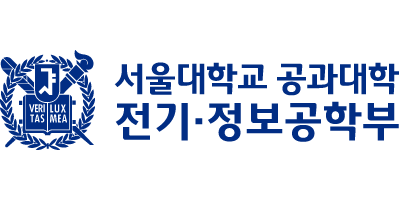[학부] 박영준 교수, Univ. of Massachusetts Amherst 강연
Shirley and Ting-Wei Tang Endowment Lecture Series

Dr. Young June Park
’83 PhD ECE
Professor,
Department of Electrical Engineering and Computer Science,
Seoul National University
“From Quantum Mechanics to Semiconductor Bio Chips: Life as a UMass Alumnus”
Thursday, October 8, 2015, 4:00 p.m. to 5:00 p.m.
Cape Cod Lounge, Student Union
Reception immediately following lecture. Lecture is free and open to the public.
Dr. Park is a professor in the Department of Electrical Engineering and Computer Science at Seoul National University. His research areas include the physics and modeling of nano semiconductor devices, and bio molecular sensing using CMOS technology. Prior to joining the Seoul National University faculty, Dr. Park worked for IBM (East Fishkill, NY) and then LG Semiconductor (Seoul) as a research staff member.
Abstract
When I joined the Department of Electrical and Computer Engineering at the University of Massachusetts at Amherst as a PhD candidate in the summer of 1980, I was given a research topic on ‘Monte Carlo simulation of electrons in a 70nm Silicon Bipolar Transistor’ under the advice of Professors David Navon and Ting-wei Tang. The research was to investigate the potential impact of the ‘non classical’ movement of electrons in the very small semiconductor devices (as small as 70nm, a few tens of DNA nucleotides, which was only an imaginary number at that time) on the circuit. In 1980, IBM made a computer chip containing transistors of 3um. After 35 years, most advanced companies in the United States and Korea are making transistors of length 20nm and less—more than 1,000 times reduction in 30 years!
In the period of the technology turmoil, I have been working (mostly in Korea) to build semiconductor industries, strengthen university research infrastructures, and produce PhD students. In one ‘blue chip’ project under my leadership as a chief technology officer of Hynix (now SKhynix Inc., the number two semiconductor memory manufacturer in the world), I turned the company around from almost bankrupt to a most profitable company. In the last ten years, I have devoted my time to building early cancer detection technology based on semiconductor chips.
In this talk, I will share with you how the freedom and the opportunities at the flagship UMass campus—learning quantum mechanics, programming languages, etc., and open-minded advisors like professors Navon and Tang—led to my contributions in building, and hopefully continuing to build for many years to come, the most advanced semiconductor memory and biochip technologies in the world.
Past Lectures »

The Shirley and Ting-Wei Tang Endowment Lecture Series, founded in 1999, brings leaders of both engineering education and engineering-based companies to campus to present a major talk to the University. Lectures cover subjects such as engineering education, entrepreneurship, global engineering issues, and engineering and business leadership.
Lecturers are invited to interact with students and faculty before and after the lecture. “This is a chance for students to develop a relationship on a human level with an accomplished business leader or educator,” said Joseph I. Goldstein, dean of engineering in 1999. “I see the field of business having more to say to engineering, and our students need to be aware of what’s going on beyond their field. Many of our students will eventually be leaders in these technology-based businesses.”
Shirley Tang is a retired academic adviser for the United Asia Learning Resource Center; Ting-Wei Tang has been a professor in the Electrical and Computer Engineering Department for more than 30 years. “We decided to establish an endowment in the College of Engineering because we want to make UMass better,” the Tangs said.


